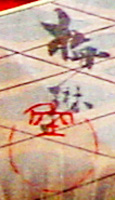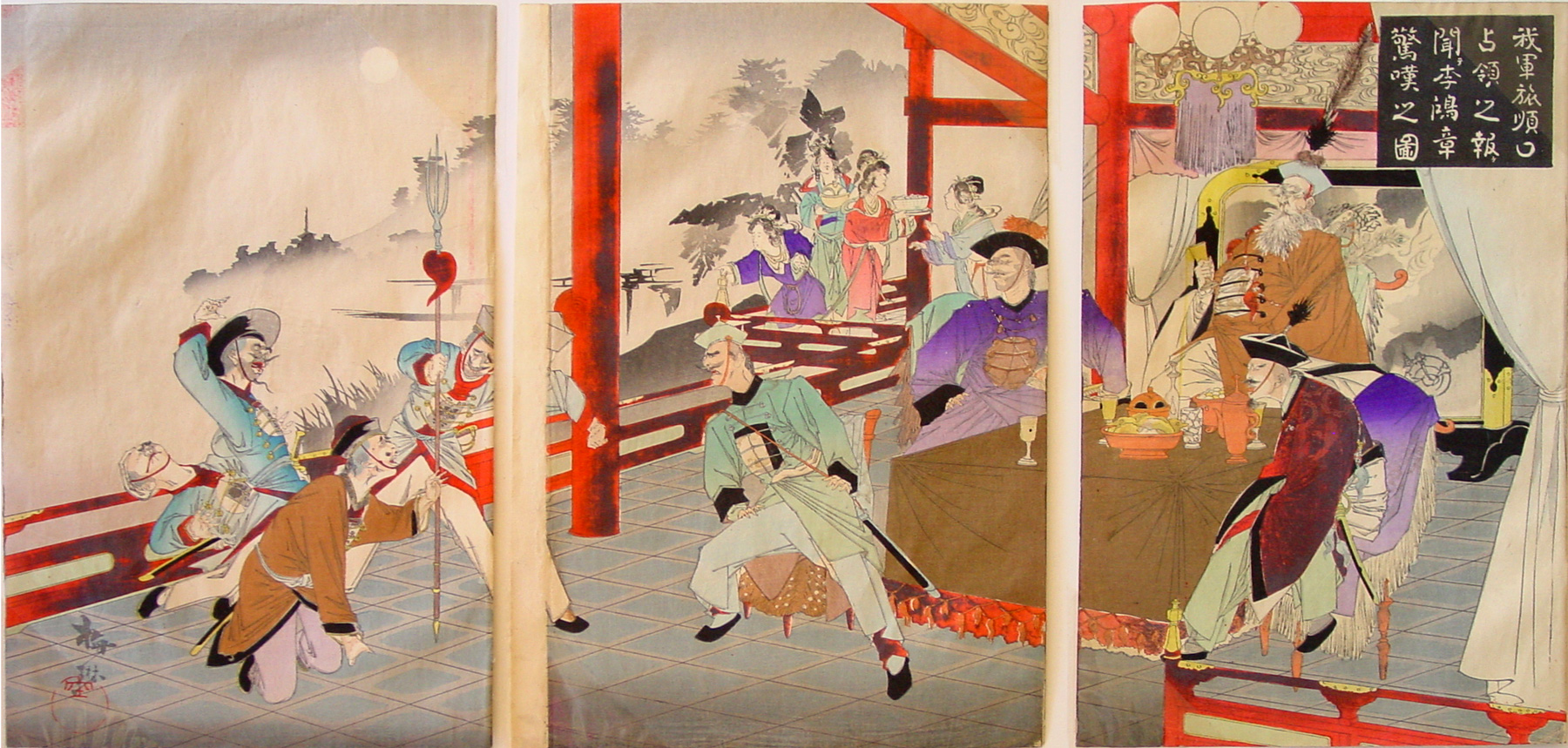About This Print
Source: Impressions of the Front: Woodcuts of the Sino-Japanese War, 1894-95, Shumpei Okamoto, Philadelphia Museum of Art, 1983 p. 38.Within a month after landing at Chinchou, the Japanese Second Army conquered the “unconquerable” Port Arthur. The fortress fell on November 21, 1894, as Japan continued its Liaotung Peninsula operation. This print is an imaginary portrayal of the Chinese leader Li Hung-chang as he hears of the fall of his most important military base in Manchuria.
Assault on Port Arthur
Source: Impressions of the Front: Woodcuts of the Sino-Japanese War, 1894-95, Shumpei Okamoto, Philadelphia Museum of Art, 1983 p. 14.On November 17, the Japanese troops began marching toward the final goal in the Liaotung operation, Port Arthur. A vital base for both the Chinese army and navy, the fortress was formidable. Ten years were spent fortifying the port and now more than thirteen thousand troops with over one hundred pieces of heavy and light artillery defended it. At dawn on November 21, the Japanese army and navy began the assault. By the next day they occupied the stronghold. Again the Chinese supreme commander fled. Conquering the greatest fortress in East Asia was a very significant victory for the Japanese. The Japanese suffered some two hundred fifty casualties, whereas the Chinese lost forty-five hundred troops. The fall of Port Arthur was a serious blow to China, as telling as the loss of Pingyang. China lost its most important military base in Manchuria, the fatherland of the dynasty, and its fleet lost its home port and arsenal. Now it was impossible for Chinese ships to be repaired. After conquering Port Arthur, a detachment from the Japanese Second Army advanced north and joined the First Army, which was defending Haicheng. They occupied Kaiping after stiff resistance on January 10, 1895, successfully completing the Liaotung Peninsula operation.
Print Details
| IHL Catalog | #292 |
| Title or Description | Report of the Japanese Conquest of Port Arthur Startles Li Hung-chang (Waga gun Ryojunkō senryō no shirase o kiite Ri Kōshō kyōtan no zu 我軍旅順口占領之報ヲ聞テ李鴻章驚嘆之図) |
| Artist | Bairin (active 1894) |
| Signature |  Bairin 梅林 Bairin 梅林 |
| Seal | Kū 空 |
| Publication Date | November 1894 |
| Publisher | 清水泰五郎 Shimizu Taigorō (alt. reading - Shimizu Yasugorō) [ref. Marks pub. 467] |
| Carver | |
| Printer | |
| Impression | excellent |
| Colors | excellent |
| Condition | good – wrinkling throughout, trimmed to image, ink offsetting left panel |
| Genre | ukiyo-e - senso-e [Sino-Japanese War Prints (1894-1895)] |
| Miscellaneous | |
| Format | vertical oban triptych |
| H x W Paper | 13 7/8 x 9 1/4 in. (35.2 x 23.5 cm) each sheet |
| H x W Image | |
| Literature | Impressions of the Front: Woodcuts of the Sino-Japanese War, 1894-95, Shumpei Okamoto, Philadelphia Museum of Art, 1983, p. 38, pl. 59 |
| Collections This Print | Philadelphia Museum of Art 1976-75-2; British Library shelfmark: 16126.d.2(69) |
3/7/2020


